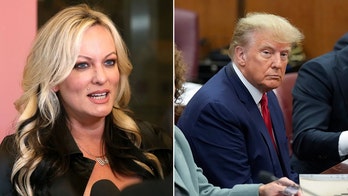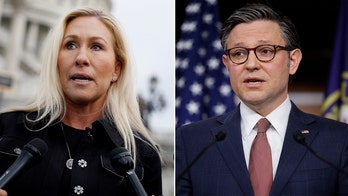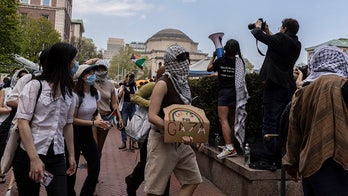Why has it taken so long to get weapons to Syrian rebels?
Who are we giving weapons to and will it level the field?
U.N. Secretary-General Ban Ki-moon said Friday he expects a soon-to-be-released investigative report to show chemical weapons were used last month in Syria -- though U.S. officials claim it will not assign blame.
The predictions come after an emboldened Bashar Assad began upping his demands in talks over relinquishing the Syrian government's chemical weapons to international control.
The talks among U.S. Secretary of State John Kerry and Russian and Syrian diplomats, which began Thursday in Geneva and could continue through the weekend, so far have not yielded a concrete agreement.
The dynamic could change next week, when U.N. inspectors release their report on the alleged Aug. 21 chemical weapons attack as early as Monday. The secretary-general said the findings will likely be an "overwhelming report that the chemical weapons (were) used."
"(Assad) has committed many crimes against humanity," he said.
At the same time, U.S. State Department spokeswoman Marie Harf reiterated that the report will probably not say who used chemical weapons. Assad and his allies in Russia have used that opening to claim the opposition may have been responsible -- an allegation strongly denied by U.S. officials who have their own intelligence and say Assad's government was to blame.
While talks proceed, the Obama administration has tabled its threat of military action.
Sensing perhaps that the threat of a U.S. strike is no longer imminent, Assad is publicly trying to strengthen his hand. In an interview with Russian television, he not only demanded the U.S. drop the threat of military action -- he also said the Obama administration must stop arming the opposition.
"When we see that the U.S. genuinely stands for stability in our region, stops threatening us with military intervention and stops supplying terrorists with weapons, then we will consider it possible to finalize all necessary procedures and they will become legitimate and acceptable for Syria," Assad said, according to the translation by Russia's RIA Novosti. "Terrorists" is the term Assad often applies to members of the Syrian opposition.
The Obama administration decided months ago to start arming the Syrian opposition, after prior evidence of chemical weapons use. Media reports this week said the CIA, after a significant delay, has started to deliver small arms to the rebels.
Assad made one other request that might be difficult to satisfy. He said that all countries in the area must honor anti-chemical weapons agreements, "and the first country to do so is Israel because it possesses nuclear, chemical and biological weapons -- all types of weapons of mass destruction."
Israel signed the Chemical Weapons Convention 20 years ago, but did not end up ratifying it.
The Assad government now claims effectively to be a party to that weapons agreement. But Syrian government officials say they need a month to submit data on their stockpiles.
Kerry objected to that time frame on Thursday, suggesting that was too long.
On Friday, Sen. John Cornyn, R-Texas, made a demand of his own, writing a letter to Kerry saying that bioweapons should also be included in the disarmament talks with Syria.
"I remain highly skeptical of Russia's true intentions, but I believe omitting Assad's bioweapons from any agreement would represent a gaping hole in the plan and would not adequately protect U.S. national security interests," he said.
Others in Washington warned that Assad and Russia's Vladimir Putin are turning the tables on the U.S. "They're just kind of playing with us," Rep. Buck McKeon, R-Calif., chairman of the House Armed Services Committee, told Fox News on Friday.
Kerry, on Thursday, stressed that the negotiations are not a "game," and that the U.S. must keep the threat of military action on the table in order to keep the pressure on Assad. The military build-up continues, as Russia reportedly dispatched several ships to the eastern Mediterranean, while the U.S. keeps its ships in position in the region.
Kerry said Friday that he and Russian Foreign Minister Sergey Lavrov have had "constructive conversations."
"I will say on behalf of the United States that President Obama is deeply committed to a negotiated solution with respect to Syria, and we know that Russia is likewise," he said. "We are working hard to find the common ground to be able to make that happen and we discussed some of the homework that we both need to do."
He said he and Lavrov agreed to meet again in New York later in the month.





